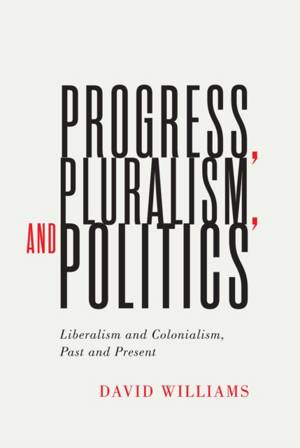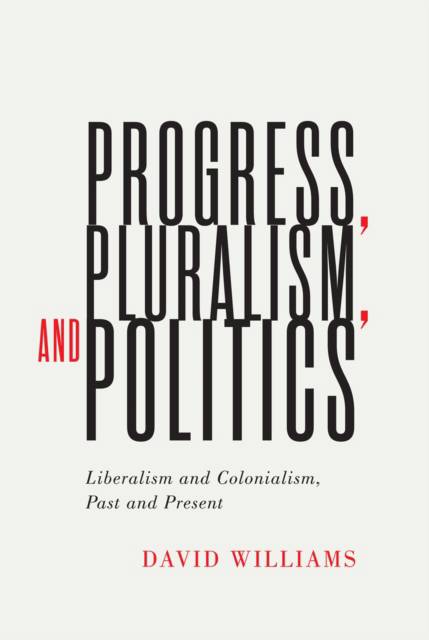
- Afhalen na 1 uur in een winkel met voorraad
- Gratis thuislevering in België vanaf € 30
- Ruim aanbod met 7 miljoen producten
- Afhalen na 1 uur in een winkel met voorraad
- Gratis thuislevering in België vanaf € 30
- Ruim aanbod met 7 miljoen producten
Zoeken
Progress, Pluralism, and Politics
Liberalism and Colonialism, Past and Present Volume 79
David Williams
€ 155,45
+ 310 punten
Uitvoering
Omschrijving
Liberal thinkers of the eighteenth and nineteenth centuries were alert to the political costs and human cruelties involved in European colonialism, but they also thought that European expansion held out progressive possibilities. In Progress, Pluralism, and Politics David Williams examines the colonial and anti-colonial arguments of Adam Smith, Immanuel Kant, Jeremy Bentham, and L.T. Hobhouse. Williams locates their ambivalent attitude towards European conquest and colonial rule in a set of tensions between the impact of colonialism on European states, the possibilities of progress in distant and diverse places, and the relationship between universalism and cultural pluralism. In so doing he reveals some of the central ambiguities that characterize the ways that liberal thought has dealt with the reality of an illiberal world. Of particular importance are appeals to various forms of universal history, attempts to mediate between the claims of identity and the reality of difference, and the different ways of thinking about the achievement of liberal goods in other places. Pointing to key elements in still ongoing debates within liberal states about how they should relate to illiberal places, Progress, Pluralism, and Politics enriches the discussion on political thought and the relationship between liberalism and colonialism.
Specificaties
Betrokkenen
- Auteur(s):
- Uitgeverij:
Inhoud
- Aantal bladzijden:
- 224
- Taal:
- Engels
- Reeks:
- Reeksnummer:
- nr. 79
Eigenschappen
- Productcode (EAN):
- 9780228004080
- Verschijningsdatum:
- 13/01/2021
- Uitvoering:
- Hardcover
- Formaat:
- Genaaid
- Afmetingen:
- 152 mm x 229 mm

Alleen bij Standaard Boekhandel
+ 310 punten op je klantenkaart van Standaard Boekhandel
Beoordelingen
We publiceren alleen reviews die voldoen aan de voorwaarden voor reviews. Bekijk onze voorwaarden voor reviews.











